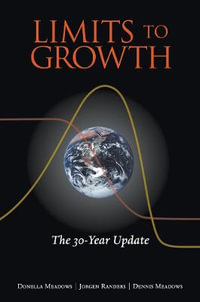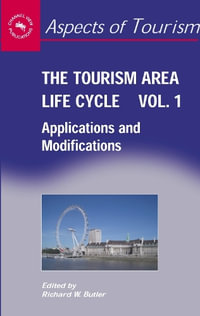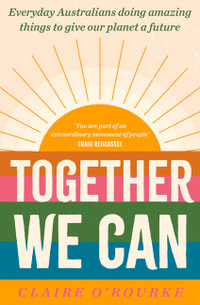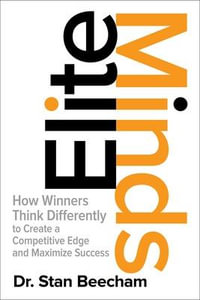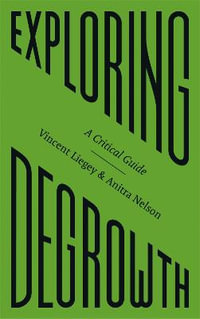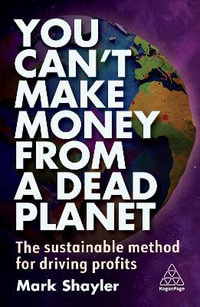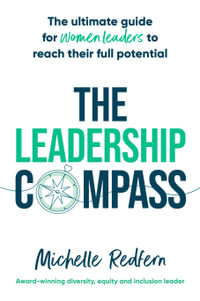"A timely book that sets out the human dimension for successful mine closure. The author brings a unique perspective - daughter of a miner and indigenous background, alongside her professional corporate, public and private sector experience. These different aspects provide the basis for an informed analysis with concrete examples and lessons learned. This is a book for mine managers and government officials, not just community specialists." - Carolyn McCommon, Specialist in community engagement, resettlement, consultation, and social performance in the oil, gas and mining sectors (Retired Global Community Advisor, Rio Tinto; consultant to USAID, IFC, UNDP and the World Bank)
"A wonderful book. Avoiding the sterility of theoretical abstraction and universalist environmental presumption, it looks closely at the human issues of mine closure in very real, dramatic circumstances through the eyes of an author uniquely qualified to see the local and indigenous texture." - Bruce Harvey, Director, Resolution88 (Social License Solutions) and Adjunct Professor, Sustainable Minerals Institute, The University of Queensland, Australia
"Mining companies enter a social terrain with inordinate amounts of political power, state-support and capital, leading to a complete reworking of not only the environment, but also the social fabric. Yet, the mines have limited lifespan, and once the mineral resources are exhausted, the operations must close. What happens to the local community then? Until today, mine closure, and its impacts on not only the economic life of the region but the cultural and spiritual practices of everyday life, are poorly known. Social Terrains of Mine Closure in the Philippines makes an important contribution to one of the little debated areas in the growing literature on mining-community relationship by showing not only the widespread disruptions that occur, but also by indicating ways how these disruptions could possibly be addressed. The case studies the author presents will be highly valued for future researchers and practitioners in the field." - Kuntala Lahiri-Dutt, Senior Fellow, Resource Environment & Development Program, Crawford School of Public Policy, ANU College of Asia and the Pacific, The Australian National University
"This pioneering book gives authoritative and heart-felt insights into the conflicts between the exploitation of natural resources in developing countries and issues faced by indigenous communities, their future social well-being and post-mining landscapes which now underwrite mine closure policy, planning and management for both existing and potential or new mining ventures. Based on historic and ongoing case studies in the Philippines, Dr Chaloping-March offers to the metalliferous mining industry at large the much-needed understanding and sensitivity towards the interlacing concerns about mining and mine closure in developing countries." -Alan Baker, Professor and Expert in Ecological Restoration (phytoremediation, revegetation, metallophytes), Centre for Mined Land Rehabilitation, Sustainable Minerals Institute, The University of Queensland, Australia
"An original erudite ethnographic work offering an intuitive lens into composite factors including legislation, local politics, and community claims for entitlements. A distinctively local and indigenous viewpoint on intricate human-environment and governance issues surrounding mining. A must read for minerals industry professionals, and others engaged in resource development and environmental management including academics, NGOs and policy makers." - Velma I Grover, Adjunct Professor, Faculty of Environmental Studies, York University, Canada
"Social Terrains of Mine Closure in the Philippines is filled with nostalgia for the unique life in mining communities, presenting the intermeshing relationships of mainly mine workers and their families, the mining corporations, Government agencies, and community groups. The language is accessible to non-academics who also are part of the many actors who all must work together after mining operations to achieve results and reciprocal benefits." - Annabelle C. Ramos, a miner's daughter and environmental advocate, Lepanto High School Alumni Association (Philippines)
"Clearly a product of thorough study and careful observation, this book presents the realities of the effects of mine closure on host communities. It is about time that mining companies end paternalism in the communities where they operate. The book is extremely valuable for expatriates (and the staff they trained) who have the attitude that any environmental standard or 'best practice' outside their home countries is 'inferior'. The author shows how community knowledge and understanding of their own environment can significantly thwart, if not improve, a mining company's closure plan. This book is not only for practitioners in the social sciences; it is also essential for engineers and scientists involved in mine planning and design. Nothing can take the place of going to the communities and listening to what people want about the future of what they refer to as their 'home' after mine closure." - Debbie Ruth Liao-Yasay, Professor in Mining Engineering, University of Southeastern Philippines; former Environment and Permitting Manager - Kingking Copper Gold Project (Philippines)









